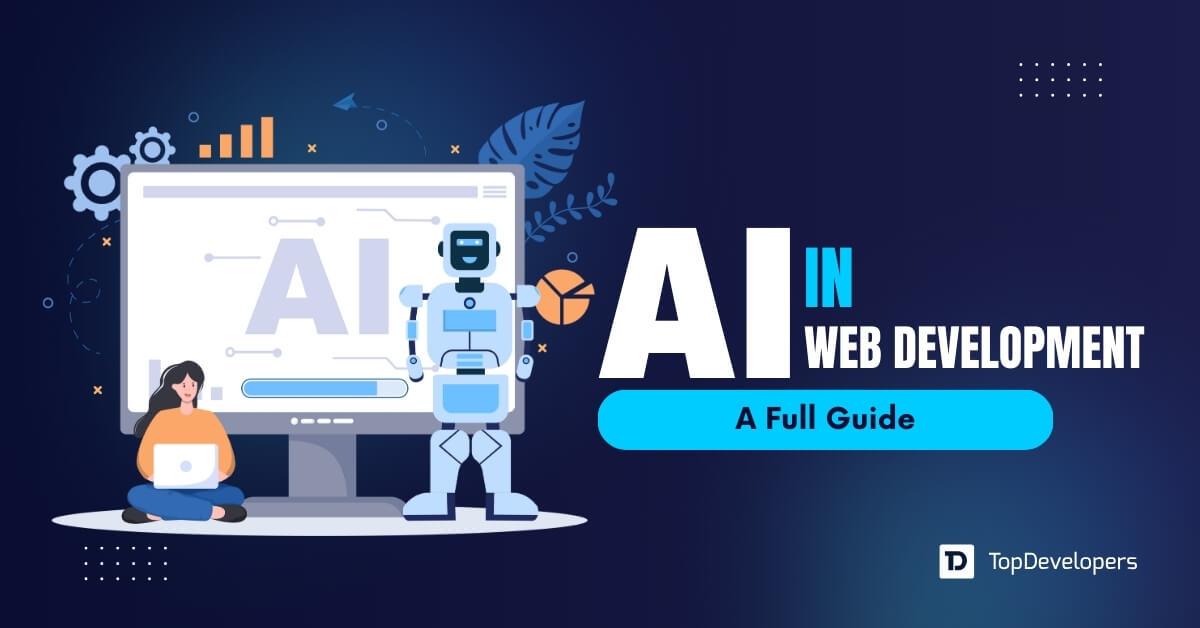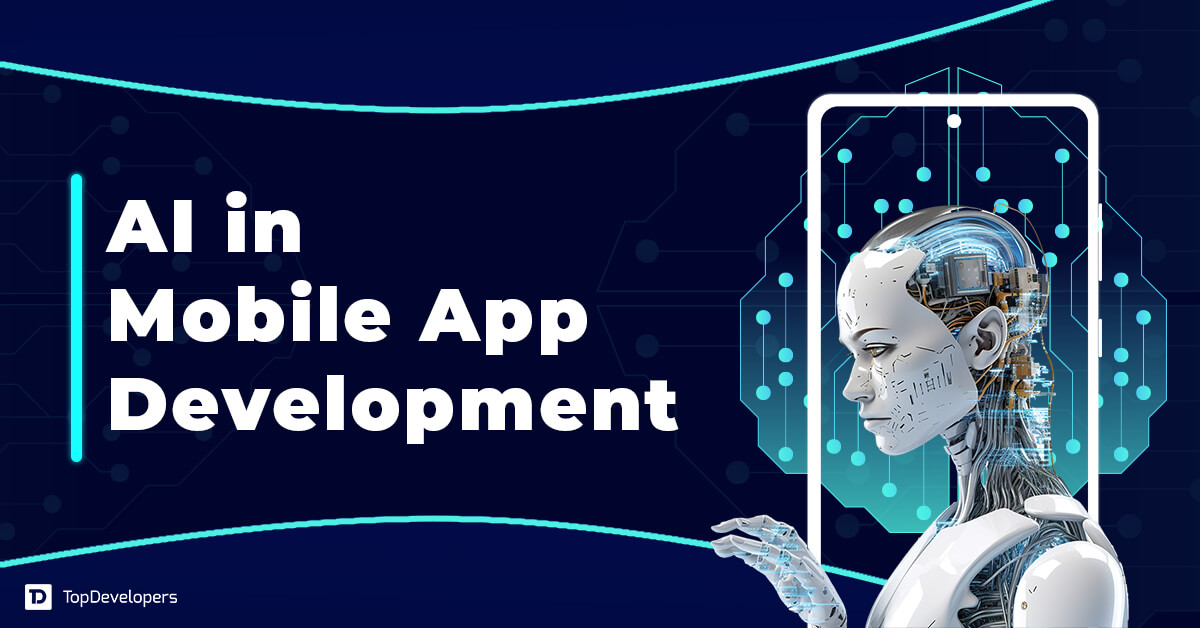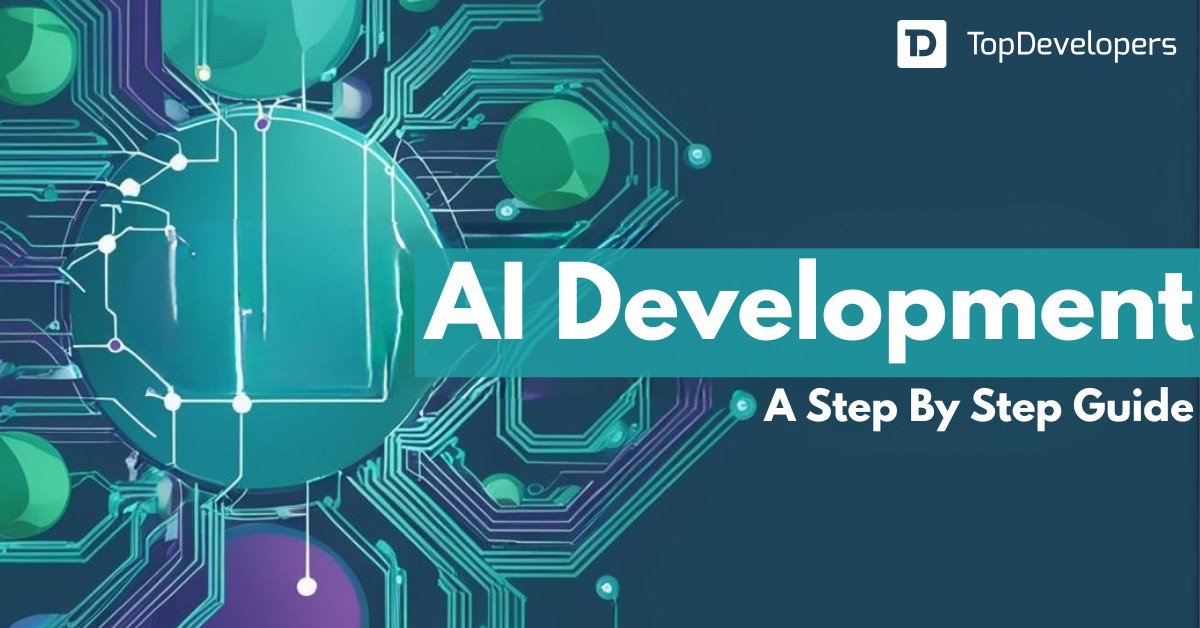
From a novel experiment to a transformative force in daily interactions, conversational AI has become an essential tool for businesses worldwide. Innovations like ChatGPT have propelled this evolution, offering solutions that range from content generation to customer support automation. The global chatbot market, projected to reach $1.25 billion by 2025 (Statista), reflects the increasing reliance on conversational AI to enhance user experiences.
A study by Search Engine Journal found that 40% of users prefer chatbot interactions when engaging with brands. These platforms deliver instant, personalized support, streamlining operations while boosting customer satisfaction. By blending Natural Language Processing (NLP) with Machine Learning (ML), conversational AI offers capabilities far beyond traditional chatbots, transforming customer service, virtual assistance, and beyond.
This article delves into the top conversational AI platforms of 2025, exploring their unique features, benefits, and use cases. From comparing conversational AI with traditional chatbots to highlighting the key criteria for selecting the right platform, this guide is designed to empower businesses to make informed decisions and leverage AI for success.
Table of Contents
Benefits of Implementing Conversational AI
Enhanced Customer Engagement
Conversational AI takes customer engagement to the next level by offering personalized, instant, and meaningful interactions. Unlike traditional chatbots, these systems can understand context, user preferences, and even emotions, tailoring their responses to individual needs.
- Personalized Interactions: AI-driven platforms use data from past interactions to customize responses, creating a sense of connection with users.
- Example: A retail chatbot suggesting products based on a customer’s purchase history.
- 24/7 Availability: Conversational AI ensures round-the-clock support, allowing businesses to engage customers even outside regular working hours.
- Cross-Channel Consistency: Whether via chat, voice, or email, conversational AI provides consistent experiences across all touchpoints.
Key Takeaway: Enhanced engagement not only boosts customer satisfaction but also fosters loyalty and repeat business.
Operational Efficiency
One of the most significant advantages of conversational AI is its ability to automate repetitive and time-consuming tasks, freeing up human resources for more strategic roles.
- Automating Routine Queries: Tasks like answering FAQs, resetting passwords, or providing order updates are efficiently handled by conversational AI, reducing the workload on support teams.
- Reducing Response Time: With instant query resolution, customers no longer need to wait in long queues, enhancing overall service efficiency.
- Streamlining Processes: Integration with CRMs, ticketing systems, and other enterprise tools ensures seamless workflows and improved operational productivity.
Example: An AI assistant for a telecom company resolving 80% of customer issues without human intervention.
Key Takeaway: Operational efficiency translates to cost savings, faster resolutions, and happier customers.
Scalability
Conversational AI platforms excel in handling increasing volumes of interactions without sacrificing quality, making them ideal for businesses experiencing growth.
- Managing High Volumes: These systems can process thousands of queries simultaneously, ensuring no customer is left waiting.
- Adaptability: Whether you’re a startup or a multinational corporation, conversational AI scales with your needs, from handling seasonal surges to supporting global operations.
- Consistent Performance: Unlike human agents who may face fatigue, AI maintains consistent service quality, regardless of the number of interactions.
Example: An e-commerce platform managing Black Friday traffic seamlessly with AI-powered chatbots handling millions of inquiries.
Key Takeaway: Scalability ensures businesses can grow without being constrained by resource limitations.
Key Features to Look for in Conversational AI Platforms
When choosing a conversational AI platform, understanding the essential features can help you make an informed decision. Here are the critical capabilities to consider:
Natural Language Processing (NLP) Capabilities
NLP lies at the heart of conversational AI, enabling platforms to understand and respond to user inputs effectively.
- Contextual Understanding: NLP helps systems interpret the intent behind user queries, ensuring accurate and relevant responses.
- Example: A user saying, “I need help with my order” might lead to specific order-related assistance instead of a generic reply.
- Sentiment Analysis: Platforms with advanced NLP can detect user emotions (e.g., frustration or satisfaction) and tailor responses accordingly.
- Language Nuances: NLP handles variations in grammar, slang, and idiomatic expressions, making interactions more natural.
Why It Matters: Robust NLP capabilities ensure human-like interactions, boosting user satisfaction and trust.
Integration Options (CRM, APIs)
Integration capabilities allow conversational AI platforms to connect with existing tools and systems seamlessly.
- CRM Integration: Connecting with platforms like Salesforce or HubSpot ensures that customer data is readily accessible, enabling personalized interactions.
- Example: A customer service chatbot fetching order history from the CRM to provide tailored support.
- API Connectivity: APIs enable platforms to integrate with third-party tools like payment gateways, ticketing systems, and more.
- Example: A virtual assistant processing payments directly within the chat interface.
- Omnichannel Support: Integration across channels (e.g., email, social media, and voice) ensures consistent experiences.
Why It Matters: Integration ensures a seamless flow of information, reducing response times and improving efficiency.
Multilingual Support
For businesses operating globally, multilingual capabilities are crucial.
- Language Versatility: Platforms should support multiple languages, both text and voice, to cater to diverse customer bases.
- Example: An AI assistant in an international hotel chain interacting with guests in English, French, and Mandarin.
- Localized Responses: Beyond language, advanced systems adapt to cultural nuances and preferences.
- Automatic Language Detection: Some platforms can identify a user’s preferred language automatically, enhancing convenience.
Why It Matters: Multilingual support expands reach and ensures inclusivity, improving user engagement worldwide.
Scalability and Customization
A good conversational AI platform adapts to the unique needs and growth trajectory of your business.
- Handling High Volumes: Scalable platforms manage increasing user queries without compromising service quality.
- Example: An e-commerce platform handling holiday-season surges with AI chatbots processing thousands of inquiries simultaneously.
- Customizable Workflows: Businesses can tailor conversational flows to meet specific industry or organizational needs.
- Example: A healthcare chatbot designed to handle patient appointment scheduling and follow-ups.
Why It Matters: Scalability and customization ensure that the platform grows with your business and remains relevant over time.
Analytics and Insights
Data-driven insights are essential for continuous improvement and maximizing ROI.
- Performance Metrics: Platforms should offer detailed analytics, such as response times, user satisfaction scores, and query resolution rates.
- Example: Tracking which questions users ask most frequently to refine chatbot training.
- User Behavior Analysis: Understanding how users interact with the platform helps businesses optimize engagement strategies.
- Feedback Loop: Insights gathered from interactions can be used to retrain AI, improving accuracy and effectiveness over time.
Why It Matters: Analytics empower businesses to make data-driven decisions and optimize customer experiences.
Top Conversational AI Platforms
ChatGPT (OpenAI)
OpenAI’s ChatGPT has revolutionized the conversational AI landscape with its advanced capabilities. Originally designed for generating human-like text, it has evolved into a powerful tool for customer engagement, content creation, and internal support. Trusted by industries ranging from education to healthcare, ChatGPT exemplifies innovation in AI-driven interactions.
Key Features/Unique Features
- Advanced Contextual Understanding: Ensures seamless, context-aware conversations for dynamic and engaging interactions.
- Human-Like Conversational Tone: Delivers natural, relatable responses tailored to individual queries.
- Extensive Fine-Tuning Capabilities: Allows customization for specific industries or use cases.
Why It Stands Out
- Superior conversational fluency that outshines competitors.
- Creative and innovative responses for diverse scenarios.
- Versatile integration options, enhancing its adaptability across applications.
Ideal Use Cases
- Customer Support: Automates FAQs, resolves complex queries, and ensures consistent service.
- Content Generation: Assists with blog writing, email drafts, and script creation.
- Employee Training: Develops training bots to streamline onboarding and upskilling.
Google Dialogflow
Google Dialogflow specializes in creating intelligent conversational agents. As part of Google Cloud, it offers seamless integration within the Google ecosystem, making it a preferred choice for businesses aiming for efficiency and scalability.
Key Features/Unique Features
- Strong NLP: Delivers accurate intent recognition for enhanced user experiences.
- Multilingual Support: Handles voice and text interactions across multiple languages.
- Easy Deployment: Enables integration across websites, apps, and IVR systems.
Why It Stands Out
- Excels in building multilingual and voice-powered bots.
- Comprehensive analytics to optimize bot performance.
- Extensive developer resources for seamless implementation.
Ideal Use Cases
- Virtual Agents: Engage customers effectively with intelligent bots.
- IVR Systems: Streamline customer service operations in call centers.
- App and Website Integration: Enhance customer experience with contextual interactions.
Amazon Lex
Amazon Lex, powered by AWS, specializes in creating robust conversational AI for text and voice interactions. Designed for scalability, it enables businesses to deploy sophisticated chatbots with deep learning technologies.
Key Features/Unique Features
- Built-in Speech Recognition: Facilitates seamless voice bot development.
- Deep AWS Integration: Connects with services like Lambda and S3 for enhanced functionality.
- Advanced NLP: Delivers intelligent, context-aware conversations.
Why It Stands Out
- Unmatched scalability for large enterprises.
- Flawless integration within the AWS ecosystem.
- Real-time, low-latency interactions for superior user experiences.
Ideal Use Cases
- Voice-Based Bots: Enhance customer interaction with natural voice-based conversations.
- Automating Customer Service: Streamline workflows for increased efficiency.
- FAQ Automation: Simplify information retrieval for users.
Microsoft Bot Framework
Microsoft Bot Framework is a comprehensive toolkit for building and deploying intelligent bots. By leveraging Azure AI, it ensures scalability, robust development, and integration across multiple channels.
Key Features/Unique Features
- SDKs: Facilitate seamless development and deployment of conversational bots.
- Extensive Channel Support: Integrates with platforms like Microsoft Teams, Slack, and more.
- Customizable Architecture: Tailored solutions for specific business needs.
Why It Stands Out
- Ideal for developers with robust tools and extensive support resources.
- Scalable for enterprise-grade applications.
- Deep integration with Azure for enhanced AI capabilities.
Ideal Use Cases
- Cross-Platform Engagement: Enable chat, voice, and social media interactions.
- Automating Customer Service: Improve efficiency with AI-powered workflows.
- Enterprise Bots: Support internal operations with intelligent assistants.
IBM Watson Assistant
IBM Watson Assistant is a trusted conversational AI platform tailored for enterprise needs. With a focus on data security and industry-specific solutions, it helps businesses optimize their customer interactions and streamline operations.
Key Features/Unique Features
- Watson Knowledge Studio: Offers advanced NLP training for precise intent recognition.
- Omnichannel Support: Ensures consistent experiences across platforms.
- Robust Analytics: Tracks performance and provides actionable insights.
Why It Stands Out
- Industry-leading NLP capabilities for superior user interactions.
- Strong emphasis on data security and compliance.
- Extensive customization for diverse industry needs.
Ideal Use Cases
- Healthcare: Automates patient inquiries and enhances accessibility.
- Banking: Improves customer experience with virtual assistants.
- Retail: Streamlines e-commerce operations with AI-driven interactions.
Kore.ai
Kore.ai is an enterprise-grade conversational AI platform tailored for automation and operational efficiency. It provides industry-specific bot templates to simplify deployment and speed up time-to-market.
Key Features/Unique Features
- AI-Driven Conversation Design: Enables natural and intuitive interactions.
- Sentiment Analysis: Dynamically adapts responses based on user emotions.
- Low-Code Platform: Facilitates quick bot creation without extensive technical expertise.
Why It Stands Out
- Tailored solutions for industries like HR, finance, and retail.
- Hyper-automation capabilities for improved operational workflows.
- Multi-platform deployment options, ensuring flexibility across channels.
Ideal Use Cases
- HR Automation: Streamlines recruitment and enhances employee engagement.
- IT Support: Addresses technical queries efficiently.
- Finance Operations: Handles transaction inquiries and payment updates seamlessly.
Yellow.ai
Yellow.ai is a no-code conversational AI platform designed to provide omnichannel automation. Its focus on hyper-personalized interactions makes it a top choice for businesses aiming to improve customer engagement.
Key Features/Unique Features
- Supports Over 100 Languages: Ensures global reach and inclusivity.
- Advanced Automation: Handles complex workflows with ease.
- CRM Integration: Simplifies data access and improves customer experience.
Why It Stands Out
- Combines no-code development with enterprise-grade capabilities.
- Excels in multilingual and cross-platform communication.
- Scales effectively for businesses of all sizes.
Ideal Use Cases
- Marketing Campaigns: Drives engagement with AI-powered solutions.
- Customer Service: Automates interactions for quicker resolutions.
- Lead Generation: Qualifies leads effectively for sales teams.
Rasa
Rasa is an open-source conversational AI framework designed for full customization and privacy-focused deployments. Its flexibility makes it a favorite among developers and organizations prioritizing data control.
Key Features/Unique Features
- Developer-Friendly: Comprehensive documentation and active community support.
- On-Premise Hosting: Ensures complete control over data.
- Customizable Workflows: Tailored to meet specific business needs.
Why It Stands Out
- Privacy-first approach for industries like healthcare and finance.
- Extensive customization options for niche applications.
- Open-source framework reduces dependency on external vendors.
Ideal Use Cases
- Industry-Specific Bots: Tailored for healthcare, banking, and more.
- Compliance-Focused Applications: Designed to meet strict security requirements.
- In-House Deployments: Ensures full control over operations and data.
Ada
Ada is a conversational AI platform known for scaling customer support automation. With its no-code interface, businesses can create efficient bots quickly and easily.
Key Features/Unique Features
- No-Code Interface: Allows rapid bot creation without technical skills.
- Personalized Intent Recognition: Delivers accurate and tailored responses.
- Advanced Analytics: Tracks and optimizes bot performance.
Why It Stands Out
- Scales seamlessly while maintaining high-quality conversations.
- User-friendly design reduces dependency on technical teams.
- Ideal for businesses of all sizes.
Ideal Use Cases
- Retail: Enhances e-commerce customer experiences with automated support.
- Travel: Simplifies booking processes and answers customer inquiries.
- Customer Support: Handles high query volumes effectively.
Tars
Tars is a conversational AI platform specializing in lead generation and customer engagement. Its visual bot builder makes it easy for non-technical users to design and deploy chatbots.
Key Features/Unique Features
- Drag-and-Drop Visual Bot Builder: Simplifies bot creation for all users.
- Conversion Tracking: Measures campaign success.
- Multilingual Support: Enables businesses to serve global audiences.
Why It Stands Out
- Focuses on driving business growth through targeted engagement.
- Provides deep insights into customer behavior for data-driven strategies.
- Ideal for creating high-conversion chatbots with minimal effort.
Ideal Use Cases
- Marketing: Builds engaging campaigns for lead generation.
- Lead Capture: Optimizes landing pages with chatbots.
- FAQ Automation: Provides instant resolutions for customer queries.
Amelia
Amelia is a cognitive conversational AI platform designed to deliver human-like interactions. It caters to enterprise-level applications, focusing on customer service and process optimization.
Key Features/Unique Features
- Human-Like Interactions: Engages users with natural, multi-turn conversations.
- Emotion Detection: Recognizes and adapts to user emotions.
- Generative AI Integration: Combines cognitive and generative AI for versatility.
Why It Stands Out
- Exceptional ability to mimic human-like responses.
- Adaptive learning ensures continuous improvement.
- Focuses on empathetic, customer-centric interactions.
Ideal Use Cases
- Customer Service Automation: Provides 24/7 empathetic support.
- Internal Process Optimization: Automates repetitive workflows.
- Sales and Marketing: Engages customers with personalized interactions.
CoRover.ai
CoRover.ai is a conversational AI platform that excels in creating multilingual and scalable bots. It is ideal for enterprises looking to enhance user experiences with natural communication.
Key Features/Unique Features
- Multilingual Support: Handles text and voice in over 100 languages.
- Human-Centric Design: Focuses on creating natural, engaging experiences.
- Scalability: Ensures seamless handling of high traffic volumes.
Why It Stands Out
- Emphasizes inclusivity with multilingual capabilities.
- Tailored for industries like banking, healthcare, and e-commerce.
- Combines advanced NLP with user-friendly deployment options.
Ideal Use Cases
- Banking and Finance: Simplifies customer transactions and inquiries.
- Healthcare: Enhances patient support and accessibility.
- E-Commerce: Assists with product inquiries and recommendations.
Boost.ai
Boost.ai is an AI-powered conversational platform designed for customer service automation and omnichannel support. Its focus on reliability and scalability makes it a strong contender in the industry.
Key Features/Unique Features
- Generative AI Integration: Offers creative, dynamic conversational experiences.
- Omnichannel Support: Ensures consistency across chat, voice, and social media.
- 24/7 Availability: Provides uninterrupted customer support.
Why It Stands Out
- Balances creativity and operational reliability.
- Focuses on reducing operational costs with self-service solutions.
- Integrates easily with enterprise systems for seamless deployment.
Ideal Use Cases
- Customer Service Automation: Enhances efficiency and user satisfaction.
- Internal Support: Addresses employee queries effectively.
- Sales and Marketing: Improves lead generation with tailored interactions.
Essential Guide for You: Conversational AI vs Generative AI
How to Choose the Right Conversational AI Platform
Selecting the right conversational AI platform can feel overwhelming with so many options available. To make the decision easier, consider the following critical factors:
Business Needs Assessment
Start by evaluating your organization’s specific needs and goals for implementing conversational AI.
- Identify Pain Points: Pinpoint the challenges you want to address, such as reducing customer service response times or automating repetitive tasks.
- Define Use Cases: Determine where conversational AI will be most impactful, whether in customer support, lead generation, or internal operations.
- Example: A retail business might prioritize product recommendations and cart recovery bots, while a healthcare provider could focus on appointment scheduling and patient inquiries.
Key Takeaway: A clear understanding of your business needs ensures you choose a platform that aligns with your objectives.
Budget Considerations
Your budget plays a pivotal role in selecting the right platform.
- Evaluate Cost Models: Some platforms offer pay-as-you-go pricing, while others require annual subscriptions or upfront investments.
- Account for Scalability Costs: As your usage grows, consider how costs may scale—this includes user volume, integrations, and advanced features.
- Factor in Hidden Expenses: Look out for costs related to customization, additional integrations, or technical support.
Example: A startup might opt for an affordable, no-code solution, while an enterprise may invest in a robust platform with extensive customization options.
Key Takeaway: Choose a platform that fits within your budget while offering flexibility for future expansion.
Industry-Specific Solutions
Some platforms excel in catering to particular industries.
- Explore Templates: Look for platforms offering industry-specific templates or pre-built workflows.
- Example: Healthcare bots designed for HIPAA compliance or e-commerce bots tailored for upselling and cart recovery.
- Customization Options: Ensure the platform can adapt to the unique requirements of your sector.
- Check for Compliance: Industries like finance and healthcare have strict regulatory requirements; verify that the platform adheres to necessary standards.
Key Takeaway: An industry-aligned platform minimizes setup time and ensures optimal functionality.
Scalability Requirements
Ensure the platform can scale with your business as it grows.
- User Volume: Evaluate how well the platform handles increasing query volumes during peak periods.
- Example: An e-commerce business needs a chatbot capable of handling Black Friday surges without performance issues.
- Flexibility in Features: Platforms that allow you to add new capabilities, such as voice support or multilingual functionality, are ideal for long-term use.
- Global Reach: If your business operates internationally, ensure the platform supports multiple languages and regional nuances.
Key Takeaway: A scalable platform ensures your conversational AI solution remains effective as your business evolves.
Conclusion
Artificial intelligence, particularly conversational AI and generative AI, has ushered in a new era of seamless, human-like communication with machines. With its ability to understand context, deliver personalized experiences, and adapt to evolving user needs, conversational AI continues to redefine how businesses engage with customers and streamline operations.
As we approach 2025, the potential for innovation in conversational AI is boundless. Organizations of all sizes are gaining access to smarter, more automated platforms that simplify workflows, enhance virtual workplaces, and foster meaningful connections. These technologies not only address present challenges but also open the door to transformative opportunities in the digital landscape.
For businesses looking to harness the power of conversational AI, exploring the top conversational AI companies is a great starting point. These companies specialize in delivering cutting-edge solutions tailored to diverse industry needs, helping organizations streamline processes, enhance customer engagement, and drive innovation.
By adopting conversational AI solutions, businesses can stay ahead of the curve, embracing the digital future with confidence. The integration of generative AI and conversational platforms will empower organizations to adapt, innovate, and lead in an ever-evolving marketplace.
 Gillian Harper
| Jan 13, 2025
Gillian Harper
| Jan 13, 2025
A professionally engaged blogger, an entertainer, dancer, tech critic, movie buff and a quick learner with an impressive personality! I work as a Senior Process Specialist at Topdevelopers.co as I can readily solve business problems by analyzing the overall process. I’m also good at building a better rapport with people!


